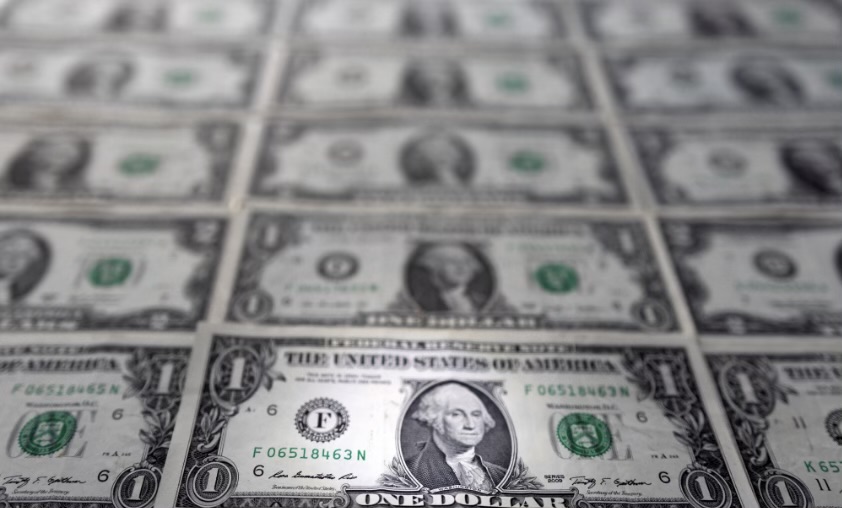Since the fall of the Soviet Union in 1991, the United States has maintained its status as the number one world power both economically and militarily. What has given capability for this to continue is the bedrock of the world economy that is the United States dollar. The United States economy leans heavily upon the value of the dollar as the reserve currency for much of the world. Yet in recent economic and political shifts, the rise of competing powers and economies is posing a threat to the integrity of the dollar, and hence the integrity of the United States not only as an economy, but as a superpower.
In 1971 President Richard Nixon announced that the dollar could no longer be exchanged for gold by foreign governments, eliminating it as a gold-based currency. Many countries had already taken up the dollar as their reserve currency, since the United States held about ¾ of the gold deposits at the time. While the strength of the dollar now relied on the strength and productivity of the United States economy, countries were reassured by the fact that the United States had surpassed the British Empire to become the most powerful economy in the world. The purpose of Nixon’s move was to solve the inflation of the time that was created by an increase of dollars throughout the world without a comparable increase of gold, which Nixon accomplished successfully, if only temporarily. However, nearing the turn of the century industries began transferring their manufacturing to developing countries with cheap labor. As such, United States industry and exports began to decline, causing the value of the dollar to instead rely on the security of the dollar as an investment. This meant that countries were effectively investing in the existing power of the dollar, the dominance of US financial markets, the trust in US treasury securities to safely store money, and faith in the US ability to pay off debt. Despite the United States continually printing large quantities of money and its ballooning debt, the dollar remains the bedrock of world economics largely due to the history and precedent that the United States has established as well as its military dominance. The United States’ military power led to it being able to seize and freeze assets of countries or governments who made economic decisions or held positions that did not comply with the position of the dollar as the standard as the world currency. As such, the strength of the dollar is presently still existing as the reserve currency. Today, central banks hold about 59% of their reserves in dollars, the official currency of the World Bank is the dollar, 65 countries peg their currency to the dollar, and 11 countries use it as their official currency.
Yet rapid increase of population, development, and technologies has given rise to new economies that pose a threat to the status quo of dollar dominance. Most notable of these economies are Brazil, Russia, India, China, and South Africa, who form the economic alliance known as BRICS. 25 other nations have shown interest in the alliance, which is expected to create a rival currency based on gold or other valuable metals in order to spearhead the de-dollarization of the world economy. Iraq, one of the countries interested in joining BRICS, recently banned the dollar from being used in business transactions. Additionally, an increasing quantity of trade is being conducted in alternative and local currencies. Egypt decided to settle trade with China, Russia, and India in their own local currencies. France became the first to conduct a trade of Liquefied Natural Gas in the Chinese yuan. Pakistan similarly settled a Russian oil import in the yuan. While the impacts of these shifts have not yet impacted the value of the dollar, the current direction suggests a major impact on the United States economy is not far off. The implications of the United States’ 32 trillion dollars of debt have not yet been felt by Americans due to the dollar’s existence as the world’s currency. Hence, the US government has been able to continue excessive military spending and rapidly increasing debt while printing and borrowing more and more money.
Many geopolitical analysts point to the political and economic transition into a multi-polar world in which the United States is not the dominant superpower. As in the 20th century, two of the major players continue to be China and Russia, who have both worked to establish strong economic relationships with other countries. In the Eurasian Economic Forum Russian President Putin met with presidents of Belarus, Kyrgyzstan, Kazakhstan, and the Deputy Prime Minister of Armenia. Chinese President Xi Jinping also made a video address during the plenary session. Putin highlighted the increase of trade, investments, and economic development among Eurasian nations and pushed for further cooperation for mutually beneficial economic strategies and relationships. Similarly, Putin highlighted Russia’s economic strength and growth in the St. Petersburg Economic Forum. Despite international pressure and sanctions, Russia’s GDP is expected to reach a growth rate of at least 2%, and its unemployment rate is currently at the lowest in its history at 3.3%. China has pursued economic and infrastructure projects in Asian and African countries, often causing those countries to turn away from the more militaristic approach to aid supplied by the United States. China has also maintained its growth as an economic powerhouse with its large exports to countries throughout the world. Yet the fastest growing major economy in the world is now India, a country that has surpassed China as the most populous. While a large portion of India’s growth can be attributed to demographics, it also relies on India’s high worker productivity, service exports, and large consumer market.
While the prospects of competing economies and the failure of the dollar as the world reserve currency pose a very real threat to both the economy and the stability of the United States, these consequences are direct results from its own decisions. Its hyperfixation on military dominance has caused excessive military spending, fissures in international economic relations, and a neglect of its domestic economy. It would not be far off to say that the United States has engaged in a self-fulfilled prophecy in which it relied heavily on military strength to protect the value of the dollar while creating both a domestic and foreign imbalance that is pushing other countries away from the dollar, therefore diminishing US economic strength and integrity. Large empires are known to firstly crumble from within, and in this case it appears to be its own neglectful decisions that could lead to the fall of the United States as the one and only superpower.



